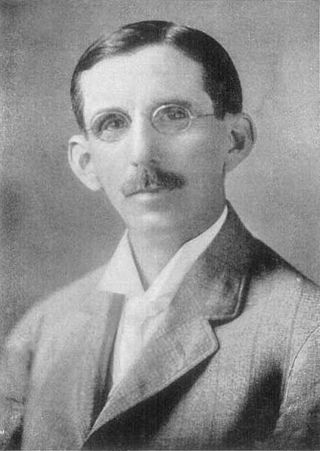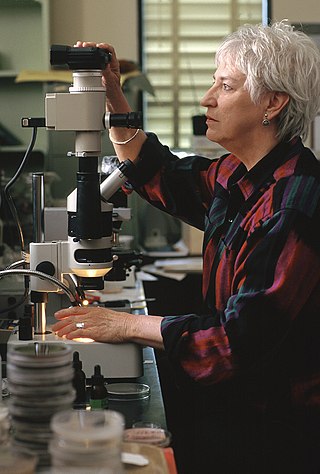Related Research Articles

Liberty Hyde Bailey was an American horticulturist and reformer of rural life. He was cofounder of the American Society for Horticultural Science. As an energetic reformer during the Progressive Era, he was instrumental in starting agricultural extension services, the 4-H movement, the nature study movement, parcel post and rural electrification. He was considered the father of rural sociology and rural journalism.

Peter Hamilton Raven is an American botanist and environmentalist, notable as the longtime director, now President Emeritus, of the Missouri Botanical Garden.

Professor David John Mabberley, is a British-born botanist, educator and writer. Among his varied scientific interests is the taxonomy of tropical plants, especially trees of the families Labiatae, Meliaceae and Rutaceae. He is perhaps best known for his plant dictionary The plant-book. A portable dictionary of the vascular plants. The third edition was published in 2008 as Mabberley's Plant-book, for which he was awarded the Engler Medal in Silver in 2009. As of June 2017 Mabberley's Plant-book is in its fourth edition.

Elmer Drew Merrill was an American botanist and taxonomist. He spent more than twenty years in the Philippines where he became a recognized authority on the flora of the Asia-Pacific region. Through the course of his career he authored nearly 500 publications, described approximately 3,000 new plant species, and amassed over one million herbarium specimens. In addition to his scientific work he was an accomplished administrator, college dean, university professor and editor of scientific journals.
William Trelease was an American botanist, entomologist, explorer, writer and educator. This botanist is denoted by the author abbreviation Trel. when citing a botanical name.
Jack Rodney Harlan was an American botanist, agronomist, plant collector, and campaigner for crop plant biodiversity conservation.

Robert F. Thorne was an American botanist. He was taxonomist and curator emeritus at Rancho Santa Ana Botanic Garden and professor emeritus at Claremont Graduate University in Claremont, California. His research has contributed to the understanding of the evolution of flowering plants.
Karl Joseph Niklas is the Liberty Hyde Bailey Professor emeritus in the Section of Plant Biology, School of Integrative Plant Science, at Cornell University. He is best known for his work on plant biomechanics, allometry, and functional morphology, and for his long-standing contributions to understanding plant evolutionary biology, particularly early land plant evolutionary diversification patterns and morphospaces.
Te-Tzu Chang or T. T. Chang was a prominent Chinese agricultural and environmental scientist.

George Francis Atkinson was an American botanist and mycologist.
William Hardy Eshbaugh III is Professor Emeritus of Botany at Miami University, known primarily for his research on chili peppers and one of three authors of the seminal work covering the flora and biogeography of the Bahamas.

Sandra Diane Knapp is an American-born botanist. She is a merit researcher of the Plants Division of the Natural History Museum, London and from 2018 was the president of the Linnean Society of London. While working at the Natural History Museum, London she has overseen the Flora Mesoamericana inventory of Central American plants. She has published several books on botanical subjects as well as a significant number of scientific articles. In 2016 she was awarded the Linnean Medal. In 2022 she was elected as a Fellow of the Royal Society. In 2023 she was appointed an Officer of the Order of the British Empire (OBE) and was awarded the Engler Medal in Gold by the International Association for Plant Taxonomy.

Beverly Thomas Galloway was an American plant pathologist and horticulturist who was the first head of the Division of Vegetable Physiology and Pathology of the United States Department of Agriculture (USDA). He served for one year as Assistant Secretary of Agriculture of the United States, and has been described as "arguably the single, most influential figure involved in the early growth and development of plant pathology and the plant sciences generally in the USDA." He served as president of the Botanical Society of America, was a charter member of the American Phytopathological Society, and was a fellow of the American Association for the Advancement of Science.
Arthur Johnson Eames was an American botanist who spent over 50 years as faculty member and emeritus professor of botany at Cornell University, known for his work on flower anatomy and plant morphology. He served as president of the Botanical Society of America in 1938, was a member of the American Academy of Arts and Sciences, and received an honorary LL.D. from the University of Glasgow in 1950.

William Jacob Robbins (1890–1978) was an American botanist and physiologist. He attended Lehigh University from 1906 to 1910 and earned a Ph.D. from Cornell University in 1915. He was director of the New York Botanical Garden from 1937 to 1957. He was a member of the National Academy of Sciences and the American Philosophical Society, serving as president of the latter from 1956 to 1959. In 1943 he served as president of the Botanical Society of America and Torrey Botanical Club. The standard author abbreviation W.J.Robbins is used to indicate this person as the author when citing a botanical name. He was the father of virologist and Nobel Prize Laureate Frederick Chapman Robbins.
Chirayathumadom Venkatachalier Subramanian, popularly known as CVS, was an Indian mycologist, taxonomist and plant pathologist, known for his work on the classification of Fungi imperfecti, a group of fungi classified separately due to lack of specific taxonomic characteristics. He authored one monograph, Hyphomycetes: An Account of Indian Species, Except Cercosporae and three books, Hyphomycetes, taxonomy and biology, Moulds, Mushrooms and Men and Soil microfungi of Israel, besides several articles published in peer-reviewed journals. He was a recipient of many honours including the Rafi Ahmed Kidwai Award of the Indian Council of Agricultural Research, the Janaki Ammal National Award of the Government of India and seven species of fungi have been named after him. The Council of Scientific and Industrial Research, the apex agency of the Government of India for scientific research, awarded him the Shanti Swarup Bhatnagar Prize for Science and Technology, one of the highest Indian science awards, in 1965, for his contributions to biological sciences.
Prafullachandra Vishnu Sane is an Indian molecular biologist and plant physiologist, known for his pioneering studies on photosynthesis. He is a former director of National Botanical Research Institute and an elected fellow of the Indian Academy of Sciences, Indian National Science Academy, National Academy of Sciences, India, National Academy of Agricultural Sciences and the Maharashtra Academy of Sciences. The Council of Scientific and Industrial Research, the apex agency of the Government of India for scientific research, awarded him the Shanti Swarup Bhatnagar Prize for Science and Technology, one of the highest Indian science awards, in 1981, for his contributions to biological sciences.

Meredith May Blackwell is an American mycologist, known as one of the world's leading experts on fungi associated with arthropods.
Sterling Howard Emerson was an American geneticist. Emerson was awarded a Guggenheim Fellowship in 1951.
References
- ↑ John Kingsbury; Karl Niklas; Natalie Uhl (1998). "Harlan Parker Banks Memorial Statement". Cornell University, Office of the Dean of the University Faculty.
- ↑ International Plant Names Index. H.P.Banks.